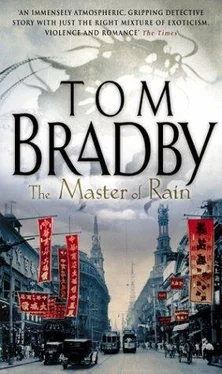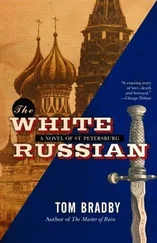Lu originally hails from the township of Gaoquiao in Pudong. His early life is shrouded in mystery and myth, but there is a general consensus that his family was poor. They drifted to Shanghai, like so many others, to try to make their fortune, but found only squalor and disease. Lu’s mother died in the first year here, when he was a small boy (aged five or six, we estimate). His father remarried the following year, another woman from their township, only to die himself shortly afterwards. The stepmother then returned to the village but was kidnapped by Brigands. Lu, now about seven or eight, was left to fend for himself.
He returned to Shanghai, drifted into a life of petty crime and then into the welcoming arms of the Green Gang, rising to prominence and then ultimate power through a combination of cunning and ruthlessness unique even for one of the most vicious organizations in the world. During 1923 he effectively oversaw the destruction of the Red Gang and is now undisputed master of crime in the Shanghai metropolitan area. He is probably the most powerful man in all China.
The primary source of the Green Gang’s income is opium illegally imported from India, an operation we believe is worth millions of dollars a year. Lu controls every aspect of its distribution and sale, as well as having a grip on prostitution across the city. He has a close relationship with the authorities in the French Concession (diplomatic discretion should perhaps prevent us from indicating how close).
In the past year, Lu has made great efforts to present himself as a legitimate and respectable member of the community, buying a series of “front” companies, donating money to charity, and making regular appearances in the social columns of the North China Daily News. The changing perception of him in normally conservative high society is partly due to the increasing sense of insecurity of the International Settlement as a result of the anarchy that continues to tear the country apart. There is great fear, as I have already documented, that the communists, who now hold sway in the south, will soon conquer the whole of the country. It is felt by some that Lu may be an important figure in ensuring that the Settlement and the French Concession are not in any way violated (the Alabama and Sheffield arrived today, serving as a reminder of the consequences to any Chinese force of attempting such an action).
As recorded in previous dispatches, we have ourselves made contact with Lu, whilst in no way, as a force, weakening our attempts to stifle and close down his criminal activities. It is clear, though, that he is as committed as we are to the total resistance of Bolshevism. He has, on occasion, provided useful intelligence on Michael Borodin and other Comintern agents who are trying to foment revolution in the Settlement, funding the communist army in the south and operating under the cover of the Soviet consulate (see summary on activities of Sov. cons. and Comintern 11th Dec 1925).
At the bottom, Granger had written, again in pencil: Borodin. Communists on move. Unifying China? Pact with devil?
The rest of the file was full of newspaper clippings, many detailing Lu’s charitable and legitimate business activities. One had a photograph of him handing over a check to a middle-aged woman at the Horticultural Society of Shanghai charity tea. He was a portly man in a long silk top, a chubby hand holding his end of the check up toward the camera lens. Another showed him doing the same for the Sisters of Mercy Orphanage.
Field shut the file and tapped his fingers on its cover. This was only a summary, so he wondered what was in the “current” file that was still in Granger’s possession.
Field opened Natasha Medvedev’s folder with a mixture of nervousness and excitement. A passport photograph of her, of poor quality, was attached to a single sheet. Her summary was as sparse as Lena Orlov’s.
Natasha Medvedev resides at the Happy Times block on Foochow Road, on the top floor. She is a native of Kazan on the Volga and arrived in Shanghai via Vladivostok on the 12th January 1922. She is an associate of Michael Borodin.
Beneath that, Field could only see a series of dates and times, listing meetings she had attended at the offices of the New Shanghai Life. This information had obviously come from an informant, because alongside each entry, someone-Prokopieff, probably-had written: said nothing of note. There was also a list of the seven occasions upon which she had been seen entering the Soviet consulate. Two of these were late at night.
Field picked up his pencil and tapped it gently alongside each entry, going down the page. Natasha Medvedev was, he thought, just as vulnerable as Lena Orlov had been. Russians did not enjoy the rights of extraterritoriality here-the right to be governed by the laws of their own country-so anyone caught “fomenting revolution” was liable to be tried by the mixed courts and then expelled to the Chinese city and the merciless hands of the local warlord. This had happened a month ago to a Hungarian. He’d been tried, found guilty, and “put in prison,” but his family was still trying to locate him.
Field returned to Lena Orlov’s file and placed the two summaries next to each other.
The two women were from the same town and they’d attended the same meetings at the New Shanghai Life on the same days.
He stood, looking at his watch, suddenly worried he would be late.
Field emerged onto the street, relieved to feel a breeze on his face, even if it did carry with it the smell of dead fish and stagnant water from the wharves and the sulfurous pollution of factories over in Pudong, on the far side of the Whangpoo River.
He had changed into his father’s dinner jacket, but it was just as thick and hot.
Once it became clear he wasn’t getting into a car, he was besieged by a group of rickshaw pullers-every one scrawny and shabbily dressed-imploring him to use their services. He shook his head and waved them away, but without discernible effect. He walked purposefully the other way, passing the open doors of a packed restaurant and a billboard advertising “Money Exchange.” The signs along the street ahead were mostly in Chinese, competing for the attention of the hordes rushing to their destinations. Long cotton banners twisted in the breeze.
An old man with no legs thrust a flat cap in Field’s direction and tugged at his trousers as he passed. Field fended him off and careered into a smart, handsome Eurasian wearing a white fedora and a long gray cotton tunic, with a silver watch pinned to his chest and bright, white shoes. Behind him was a woman in a long, figure-hugging white dress, her hair pulled back in a tight bun to reveal a pretty, oval face. Perhaps it was his imagination, but he thought she smiled at him.
Ahead, a thousand telegraph wires crisscrossed a dark, brooding sky, heavy with monsoon rain. The first drops landed on his face. Field wondered if he should feel homesick, but he didn’t. He missed nothing at all about Yorkshire.
Outside the white portico entrance to the tall red brick building that housed the American Club, Field stopped to light a cigarette. He looked up at the Stars and Stripes fluttering above the entrance. He was opposite the Municipal Administration Building and wondered if Geoffrey, too, would be walking. He couldn’t really remember what his uncle looked like. Field realized he was nervous, and recalled Edith accusing him, in a rare moment of disagreement, of “hero-worshiping a man who has played no part in our lives.”
Field stepped off the sidewalk and waited for a tram to rattle past before crossing the road and turning onto the Bund, the city’s business heart, the Wall Street of Asia. The wind was strong here, so that the Chinese walking next to him lost his hat and had to scrabble on the sidewalk to catch it. Field stopped and ran his hand through his hair, then put both hands in his pockets and watched the new Buicks and Oldsmobiles rolling past. A black Chevrolet moved slowly among them, with burly bodyguards-White Russians-standing on each running board, machine guns resting casually over their shoulders.
Читать дальше












